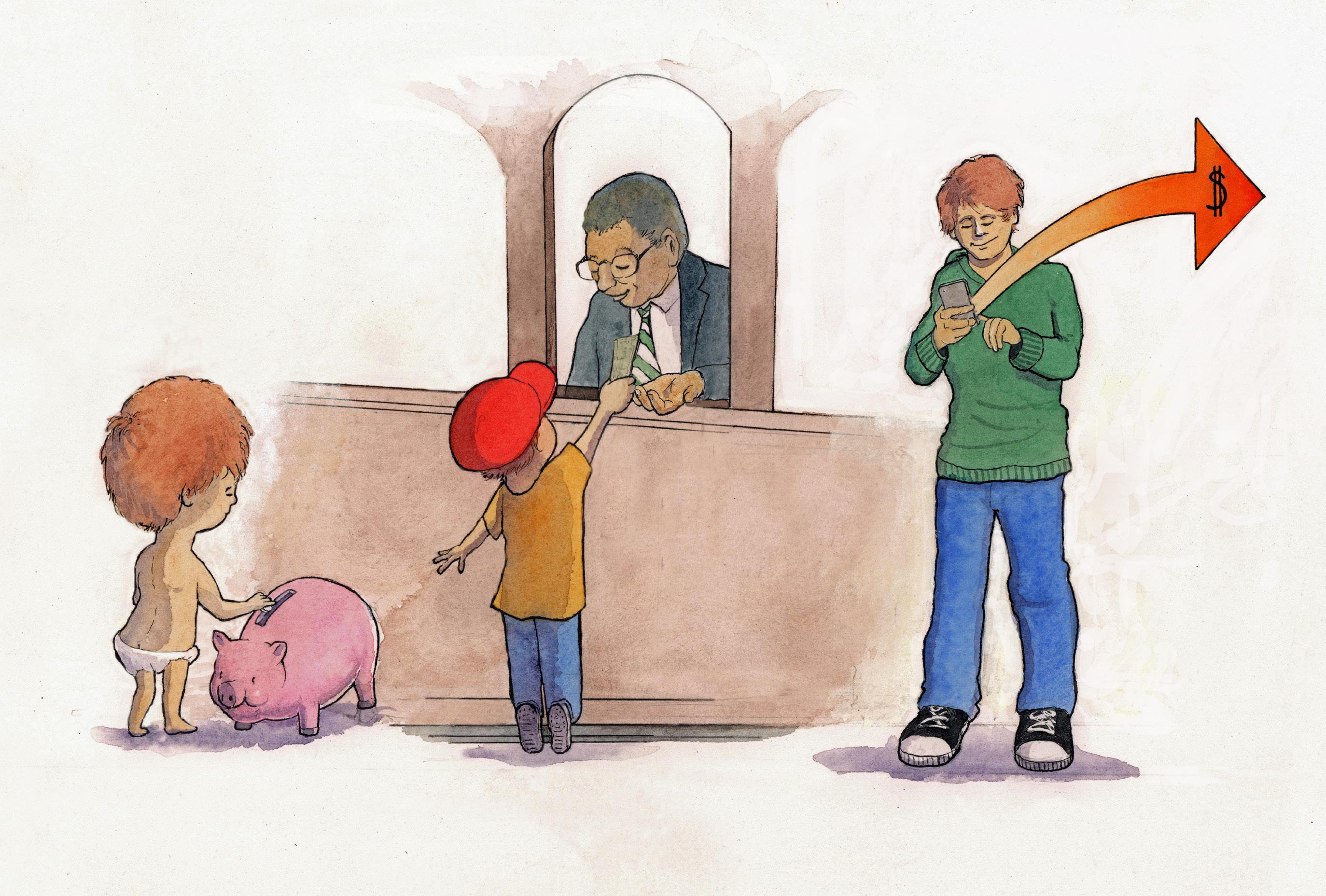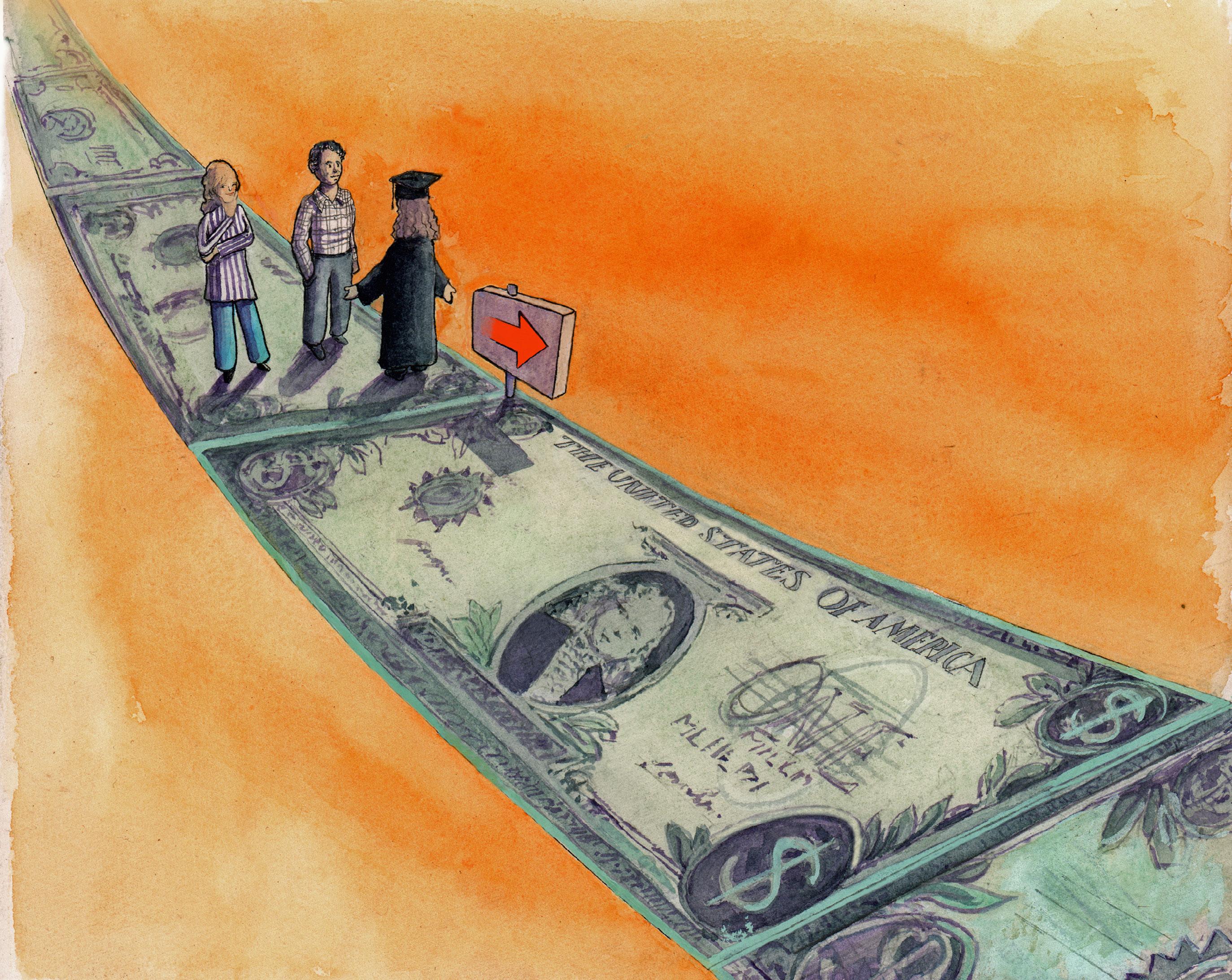
7 minute read
What Is Credit and What Building Credit Means For Your Future
What credit is and what building credit means for your future
Why Do I Need To Know This? Saving enough money to make a big purchase can take a long time—too long if your purchase will make a big difference in your lifestyle. Wouldn’t it be awesome to be able to drive to work yourself and save the time and frustration of walking or taking public transportation? But even a used vehicle costs a lot of money, and saving to buy one can take months, even years.
But there’s a solution: buying on credit. This means you borrow the money you need and agree to pay that money back on a pre-arranged schedule over a set period of time. Usually, you will be charged a monthly fee, called “inter est.” The amount of interest you must pay is added to the portion of the loan you must pay each month. In the long run, you’ll end up paying more than the original price for the item you’ve purchased. BUT, in the short term, you can start using your purchase as soon as you buy it “on credit.” Making an expensive purchase on credit is one of the features of having a bank account. It’s very important to budget those monthly payments! If possible, pay back the loan as quickly as you can and that will lower the amount of interest you pay.
How Do I Get Started? The first thing you must do is build credit, which essentially means proving that you can be trust to pay your bills on
Quick Tips
• Every year federal law allows you access to one free credit report from annualcreditreport.com — take advantage of it.
• Your credit score is one of the most important things in your life from a financial perspec tive. A low credit score — under 600 — would mean that you would be denied for loans, or would have to pay the highest interest rates on any loaned money, including credit cards. The higher the better.
• Missing or making late pay ments can be disastrous to your credit score.
• It’s better to pay off your card every month because your score is based on how responsible you are in using your credit.
time. Every time you pay promptly, you earn points toward your overall “credit score.” The higher your score, the more you’ll be trusted by a lending orga nization, such as a bank, a car dealership, or a real estate agency. A lending organization will look at your credit score and analyze how likely you are to pay their loan back on time. Credit cards are a great way to build credit because you’re expected to pay your credit card bill every month, like clockwork. Good credit means you have a good payment history. And that means you have an excellent credit score and are a great candidate for loans in the future.
However, if you accumulate lots of debt on your credit card and never pay them back on time, those cards can become your worst nightmare.
The Dangers of Credit Card Debt and How to Avoid It What happens if you don’t or can’t pay your monthly credit card bill—or at least not all of it? The lending organization, let’s say a bank, will automatically add a finance charge and interest on your monthly statement. These fees not only increase the amount of your monthly payment, but they also lower your credit score. Let’s explore this more closely.
Credit cards make life a lot easier than carrying cash around. But, when you run out of cash, you stop spending. Credit cards don’t run out ... and so, people tend to spend more money than they realize. At the end of the month when the credit card statement arrives, they are often shocked by the amount they’ve
spent. Often, they can’t pay off the entire bill. But that’s okay, right? They can wait to pay the bill next month when they have more money in the bank. We already know the problem with that—a damaged credit score and hefty fees!
Interest is money that is paid to a lending organization at a certain rate based on the amount borrowed. When you get a credit card, an annual percentage rate will be applied to any late payments. These interest rates can range anywhere from 7% to 25% or more! Imagine that you build up a $1000 credit card bill over a year’s time, and you have a 20% annual percentage rate. You’ll owe $1200. That’s $200 in interest because you didn’t pay on time— $200 you could have had in your bank account for a future purchase. If you’re not careful, credit card debt can accumulate quickly.
Personal Finance Stories
Kelly was able to get a credit card with a credit limit of $500 after she got her first job at the age of 17. Over the next few years, due to the fact that she was responsible with her spending and paid her bills on time, the credit card company rewarded her with credit increases. Soon, her credit limit was $2,000, and her credit score was 799.
However, after starting college, she had to start using her credit card for school supplies, books and meals. She also worked less, due to her full-time load of classes and before she knew it, she’d maxed out her credit card. To make matters worse, she applied for a few more credit cards and quickly maxed those out as well. She now owes about $10,000, and her monthly payments are around $350 per month, which she can’t afford. Because she applied for so many cards, and has made a few late payments, her credit score has dropped to 643.
After speaking to her parents about the situation, they agreed to loan her the money to pay off her cards, but she’d have to lock up her cards and pay them back. On top of that, she’s now using a credit monitoring app on her phone that gives her tips on how to improve her credit. And, once her parents paid the cards off, her credit score jumped back up to 725.
You can avoid credit card debt by building wise budgeting habits. First, don’t spend money you know you won’t have. If your monthly budget is $500, it would not be wise to spend $700 on your credit card. When you use your credit card, pretend that you’re spending the money right then and there. Keep your receipts and add them up every time you make a purchase so you always know what you’ve spend. You also might want to set up automatic payments for your cell phone service, car loan or other monthly expenses. This way you’ll never forget to pay these recurring bills.
Always do your research. Make sure the credit card you apply for will benefit your exact needs. If you drive a lot, get a credit card that earns gas points. See if you can find a card that doesn’t have an annual fee. And definitely avoid getting a card because it has lots of fun rewards. That’s exactly how you end up overspending and in debt. Research is the most important step in each phase of your path to financial independence. If you know exactly what you need and how to get it, your life will be much easier.
There are other ways to build your credit than using a credit card. You can apply for a credit-builder loan (which works like a credit card, but is solely used to build your credit); you can pay your monthly bills on time; and you can talk to your parents about creative options. The goal is what matters: earning a good credit score by developing good financial habits!
Exercise: Reading a Credit Card Statement
Know What You Spent
Every month you will receive a credit card statement in the mail or online. It will give you a minimum pay ment amount and the due date, the total amount you owe, the credit you have left, and a list of each item you purchased that month.
Exercise: Reading Your Credit Statement
Let’s answer a few questions about the statement shown to the right:

1. How much total credit does he have (credit line)? 2. How much credit is available to spend? 3. What is the balance (how much he owes)? 4. When is the minimum payment due? 5. How much is the minimum payment? Should he only pay the minimum or more? 6. What is the Annual Percentage Rate for purchases? 7. How much did he pay last month?











